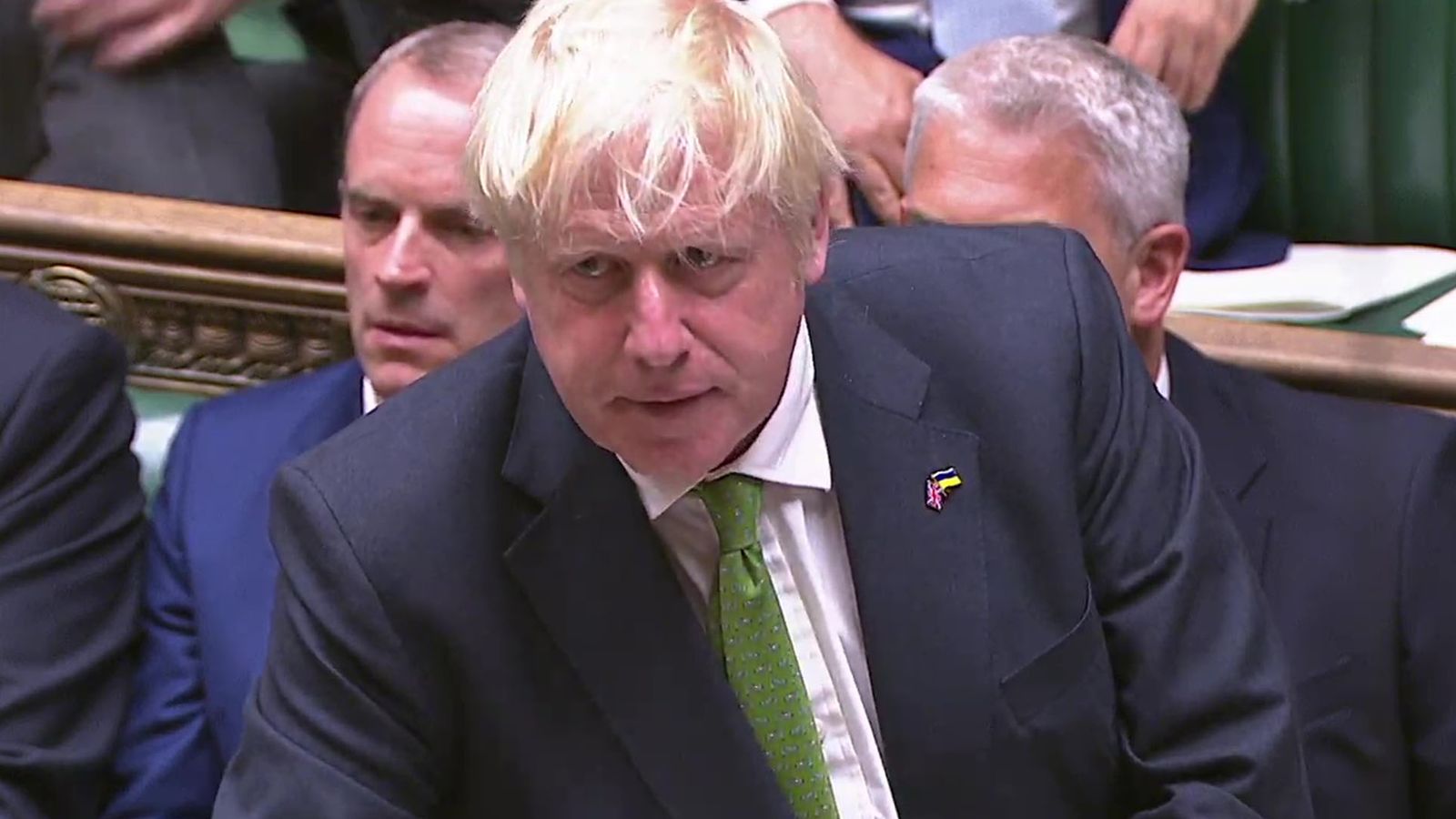Boris Johnson could face losing his seat if he is found to have lied to parliament over partygate and is suspended for at least 10 days.
Commons Speaker Sir Lindsay Hoyle has confirmed if the Privileges Committee finds the prime minister was in contempt of parliament by misleading MPs over the partygate scandal, that would fall within the remit of the Recall of MPs Act.
Under the act, any MP found guilty of contempt of parliament can be suspended.
Politics Hub: Tory leadership race sees Truss in lead as she shares “frustration” at Thatcher comparison
A recall petition would be triggered if that suspension is 10 or more sitting days, which is 14 calendar days.
After that, if at least 10% of voters in Mr Johnson‘s Uxbridge and South Ruislip seat demand a by-election he would lose his place as an MP, but would be eligible to stand again in the contest.
The cross-party committee set out its processes and procedures for the inquiry into Mr Johnson’s conduct ahead of hearing oral evidence in the autumn. It is already accepting written evidence.
Rishi Sunak has a body language problem, says expert – and Liz Truss needs to fix one key issue
‘Hasta la vista, baby’ or ‘I’ll be back’? Boris Johnson may still be dreaming of a return to Downing Street
Tory leadership race: What happens now only Rishi Sunak and Liz Truss are in the contest?
Clerk of the Journals Eve Samson, the Commons’ expert on parliamentary privilege, advised that whether Mr Johnson intended to mislead MPs did not need to be considered.
She said the intent could be seen as an “aggravating factor” when considering penalties.
In the procedures report, the committee said: “We agree with the reasoning about the nature of a contempt in that paper, namely that the focus of the House’s jurisdiction is on whether or not an action or omission obstructs or impedes or has a tendency to obstruct or impede the functioning of the House, with the consequence that, looking at contempt in broad terms, intention is not necessary for a contempt to be committed.”
Please use Chrome browser for a more accessible video player
Mr Johnson’s case will be considered “on the balance of probabilities”, which is a lower standard than the criminal test of “beyond reasonable doubt”.
Despite Mr Johnson being set to leave Number 10 in September, the committee insisted its inquiry will go ahead, as it said “political developments are of no relevance” to whether the Commons was misled or not.
The report confirmed the committee will protect anonymous whistleblowers who wish to submit evidence, as “some witnesses may only be willing to give evidence if their identity is not made public”.
Mr Johnson has been ordered to hand over documents to MPs on the committee and will be expected to give evidence in person later this year.
Labour MP Chris Bryant recused himself as chair of the Privileges Committee after the inquiry was announced to avoid any accusations of being partisan because he has been outspoken in his criticism of the PM’s behaviour and described him as a “proven liar”.
The longest-serving female MP, Labour’s Harriet Harman, has taken his place.







